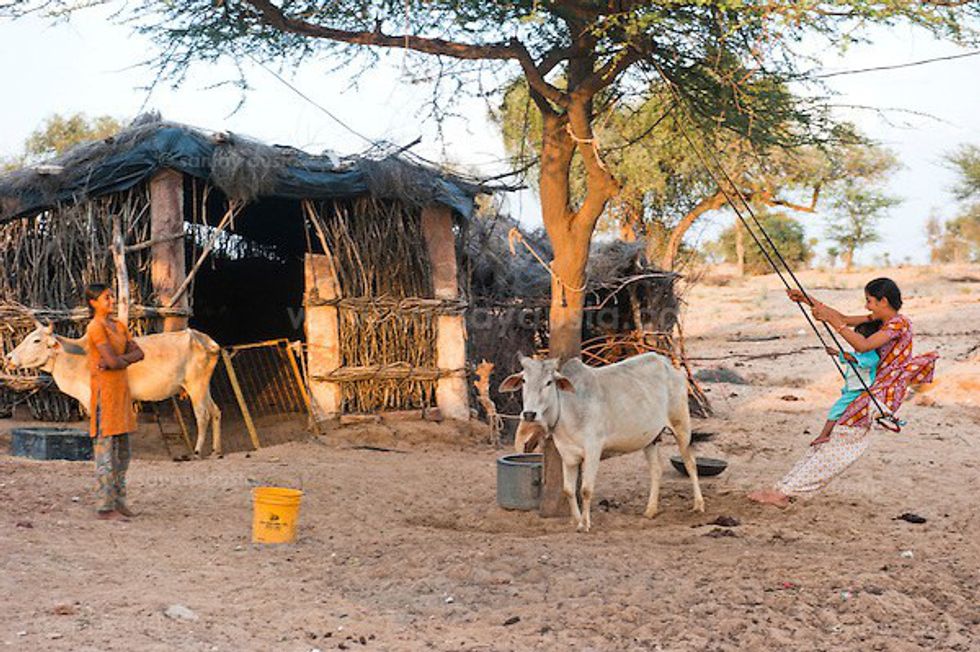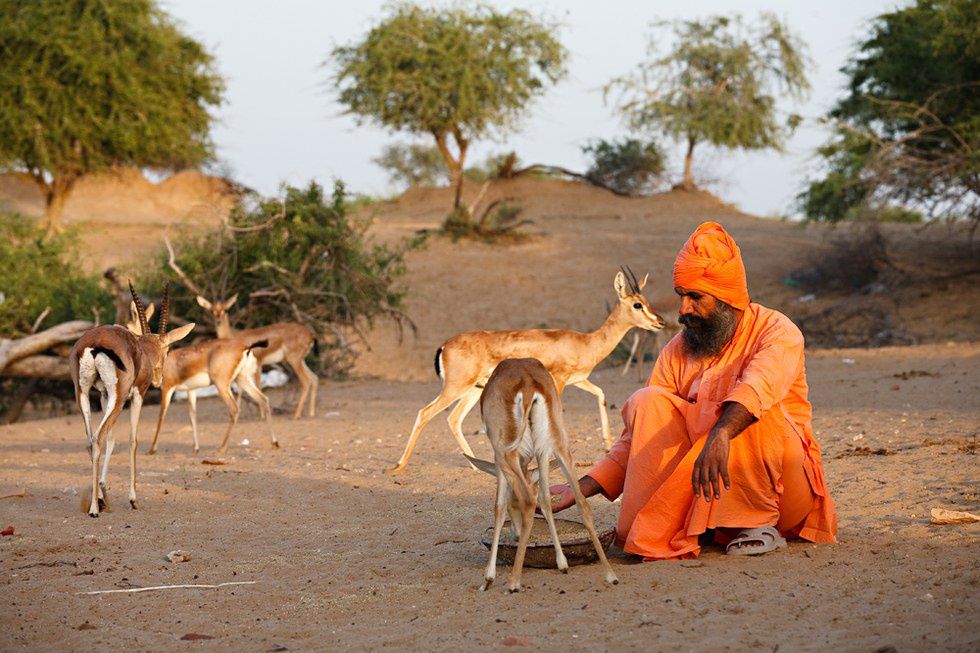The Bishnoi religion has recently been gaining more attention by activists and scholars because of their high focus on environmental conservation and resource management. Bishnoi followers are predominately found in the Northern States of India. The religion was founded by a man named Bhagwan Jambeshwar. He was born around 1451 CE and from an earlier age had an exceptional connection with nature. Thus, he set out to preserve all plants and animals of the earth. He created 29 rules to follow that focus on the health of one’s self (mentally, physically, and spiritually) and the preservation of nature.
The Bishnoi are mainly an agricultural community that rely heavily on the prosopis cineraria tree to use its bark as a tool to enrich the soil. However, these people never cut down trees for firewood; instead they use dried-out cow manure or fallen branches to use as firewood. They are also careful to not wear blue colored clothes; thus, helping to preserve indigo bushes. The Bishnoi people are very conscientious on what resources they use and where they are coming from. They work to coexist with the wildlife and vegetation of the earth without burdening the earth as much as they are able to.
They also take great care of the wildlife. They always make sure there is clean water available for the birds, goats, and antelopes that typically roam near their villages. They treat the animals the same as they would their own children. In fact, it is common that if a baby antelope is left with no mother, the Bishnoi women will actually take the baby antelope in as their own breast feed them and nurse them until they are ready to enter back into the wild. The Bishnoi people view themselves as being on the same level as any animal or plant to be living on the earth. They are not superior to the animals in their eyes.
Yes, they live an extreme lifestyle, however, I think perhaps we should all take extra care to understand how and where our products are coming from. They live a lifestyle that treats the earth as a gift and they never take more than they need. It is quite admirable and I believe their way of thinking is an important example to follow.
It is hard to imagine everyone living the same lifestyle as the Bishnoi people, but we could at least work to having the same mindset as them. We should be more aware of the amount of resources we waste and work to reduce it.
We need to work more towards giving back to the earth rather than merely taking and taking.





















